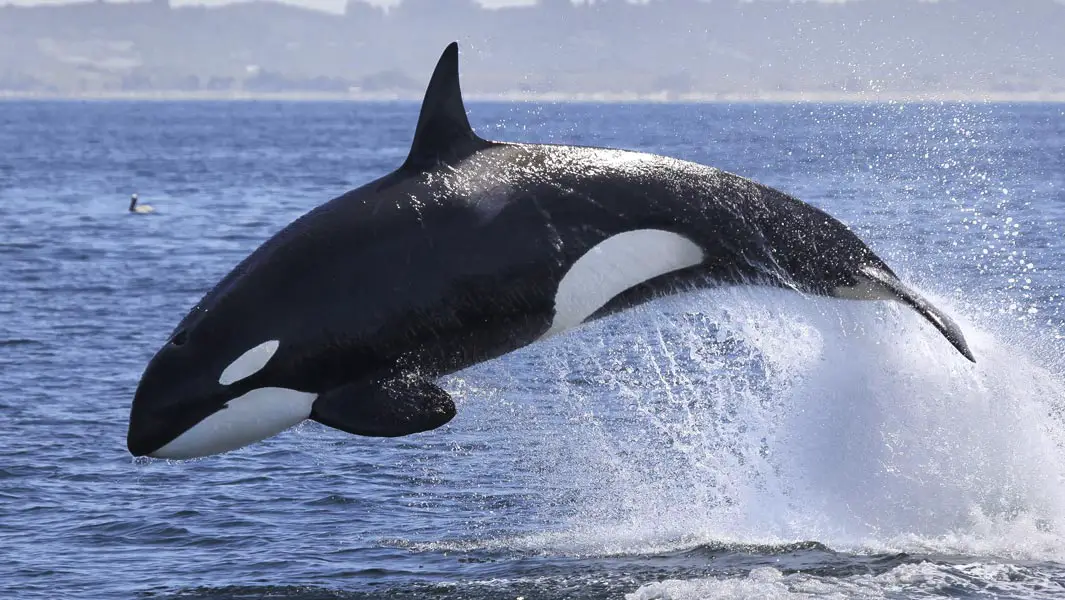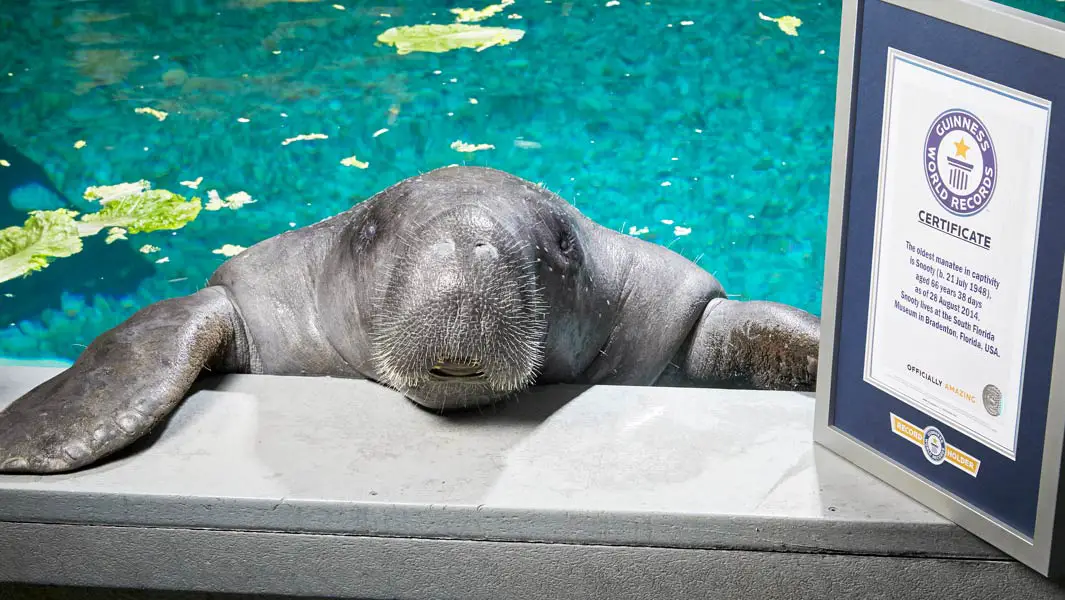


On 27 March, we celebrate the manatee. These rounded, slow-moving marine mammals – also known as sea-cows – are hugely endearing, and one in particular had his very own Guinness World Records title…
Swim forward Snooty, the oldest manatee in captivity ever. He was born on 21 July 1948 and passed away on 23 July 2017, two days after his 69th birthday. (The typical lifespan for a West Indian manatee is 30–40 years.) Since the age of two, he’d lived at the South Florida Museum in Bradenton, USA, along with three other male manatees: Randall, Baca and Gale.
In fact, according to the museum, Snooty’s birth in 1948 at the Miami Aquarium was the first documented birth of a manatee in captivity.

In the wild, threats both natural (e.g., algal blooms) and human-generated (e.g., boat strikes and hunting) have seen the species become classified as endangered. The safe, controlled environment at South Florida Museum was doubtless one of the reasons for Snooty’s great longevity.

Their needs were well catered for there. Snooty and co. lived in a 230,000-litre (60,000-US-gal) pool, giving them plenty of space to roam. And plenty of food too: this quartet of voracious herbivores could get through more than 36,290 kg (80,000 lb) of romaine lettuce and vegetables per year. In the wild, manatees consume up to 10% of their body weight every day. Their diet includes seagrass on which they graze – hence the common name “sea-cows”, a nod to their bovine terrestrial namesakes.

Snooty won legions of fans around the world. On his 67th birthday, the museum was swamped with congratulatory birthday cards. And he seemed to return the favour. "He’s definitely more interested in people than other manatees," South Florida Museum’s Jessica Schubick admitted. You can find out more about this much-loved (and much-missed) marine mammal here:
Lumbering, slow-moving grey mammals… sounds familiar? Manatees are sirenians (a taxonomic order also including dugongs) and their closest-living relatives are elephants. Both evolved from common ancestors around 50 million years ago. Like elephants, manatees replace their teeth throughout the course of their lives. As older teeth at the front of their mouths fall out, new teeth emerge at the back.
The largest sirenian ever was the now-extinct Steller’s sea-cow, which could grow to 9 m (29 ft 6 in) long and weigh 10 tonnes (22,050 lb); modern-day species are typically no more than 3.5 m (11 ft 5 in) long and weigh up to 450 kg (990 lb). Tragically, within 30 years of its discovery it had been hunted to extinction.

The longest authenticated dive for a sirenian is 24 min, for a West Indian manatee in Florida, USA. Remember all that vegetation they munch on? Well, it produces digestive gas, which the manatees use to advantage. They retain the gas when rising to the surface; when diving, they unleash a flatulent gas release and sink!
… which makes it even more unlikely that manatees were once taken for graceful mermaids. During his first journey to the Americas, Christopher Columbus noted in his journal: "On the previous day (8 January 1493), when the Admiral went to the Rio del Oro [Haiti], he said he quite distinctly saw three mermaids, which rose well out of the sea; but they are not so beautiful as they are said to be, for their faces had some masculine traits."

That crossover endures today in the name of the order Sirenia, from the word "siren". The latter was applied to the fictitious bird-women in Homer’s Odyssey, who lured unwitting sailors to their deaths by singing so beautifully that the mariners sailed towards them, wrecking their ships on nearby rocks.
So join with us in celebrating sirenians on Manatee Appreciation Day. Just try not to confuse them with a mythical siren of the seas…